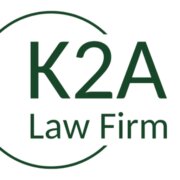Best Wrongful Termination Lawyers in Greece
Share your needs with us, get contacted by law firms.
Free. Takes 2 min.
Or refine your search by selecting a city:
List of the best lawyers in Greece
About Wrongful Termination Law in Greece
Wrongful termination in Greece refers to instances where an employee is dismissed from their job in a manner that breaches contractual or statutory obligations. Greek labor law offers significant protection to employees, ensuring that any termination of employment contracts adheres to strict legal procedures. Employers must provide valid reasons for terminating an employee and follow due process, including potential severance payments and notice periods.
Why You May Need a Lawyer
Seeking legal advice may be necessary in several situations involving wrongful termination. These include being dismissed without sufficient notice, inadequate severance payments, termination based on discrimination, or absence of a justified reason. Legal intervention may also be needed if an employer fails to follow the correct procedural steps during termination. A lawyer can help in understanding your rights, negotiating settlements, or representing you in court proceedings.
Local Laws Overview
Greek labor laws are primarily governed by the Greek Civil Code and specific employment statutes. Key aspects include the requirement for just cause in terminations, adherence to notice periods based on the length of service, and compensation regulations for unjust dismissals. Collective dismissals are subject to additional scrutiny, requiring consultation with employee representatives. Anti-discrimination laws in Greece also protect workers from being terminated based on age, gender, religion, or other protected characteristics.
Frequently Asked Questions
1. What constitutes wrongful termination in Greece?
Wrongful termination occurs when an employee is dismissed without a valid legal reason, without proper notice, or in breach of the employment contract or statutory requirements.
2. What should I do if I believe my termination was wrongful?
It is advisable to consult a lawyer who specializes in employment law to review your case and determine whether you have grounds for a claim.
3. How much notice is my employer required to give?
The required notice period depends on the length of employment, ranging from one month to four months for longer tenures.
4. Are there any protections against discriminatory terminations?
Yes, Greek law prohibits terminations based on discriminatory grounds such as race, gender, age, and disability.
5. What compensation am I entitled to if I am wrongfully terminated?
Compensation may include severance pay, which varies with the employment duration, and potential damages for breach of statutory obligations or discrimination.
6. Can my employer terminate my contract without reason?
No, terminations require just cause according to Greek law, except for temporary contracts reaching their natural end.
7. What is the process for collective dismissals?
Collective dismissals require notification and consultation with employee representatives and approval from labor authorities.
8. How is severance pay calculated in Greece?
Severance pay is calculated based on the employee's years of service and final monthly salary, with specific scales provided by law.
9. Can I negotiate my severance package?
Yes, negotiation is possible, and a lawyer can assist in discussions to potentially improve the severance terms offered by an employer.
10. What role does the labor inspectorate play in wrongful termination cases?
The labor inspectorate can mediate disputes and ensure compliance with labor laws, although formal legal proceedings may still be necessary for resolution.
Additional Resources
Individuals seeking more information on wrongful termination in Greece may find the following resources valuable: the Greek Ministry of Labor, Social Insurance and Social Solidarity; the Greek Ombudsman; and local labor unions. These organizations can provide insights, support, and guidance on labor laws and employee rights.
Next Steps
If you need legal assistance in a wrongful termination case, consider the following steps: document all relevant details of your termination, including dates, conversations, and any written communications. Seek a consultation with an employment lawyer to evaluate your situation. Engage with labor organizations for advice and support. Finally, be prepared to negotiate or pursue legal action, if necessary, to protect your rights under Greek employment law.
Lawzana helps you find the best lawyers and law firms in Greece through a curated and pre-screened list of qualified legal professionals. Our platform offers rankings and detailed profiles of attorneys and law firms, allowing you to compare based on practice areas, including Wrongful Termination, experience, and client feedback.
Each profile includes a description of the firm's areas of practice, client reviews, team members and partners, year of establishment, spoken languages, office locations, contact information, social media presence, and any published articles or resources. Most firms on our platform speak English and are experienced in both local and international legal matters.
Get a quote from top-rated law firms in Greece — quickly, securely, and without unnecessary hassle.
Disclaimer:
The information provided on this page is for general informational purposes only and does not constitute legal advice. While we strive to ensure the accuracy and relevance of the content, legal information may change over time, and interpretations of the law can vary. You should always consult with a qualified legal professional for advice specific to your situation.
We disclaim all liability for actions taken or not taken based on the content of this page. If you believe any information is incorrect or outdated, please contact us, and we will review and update it where appropriate.
Browse wrongful termination law firms by city in Greece
Refine your search by selecting a city.
















